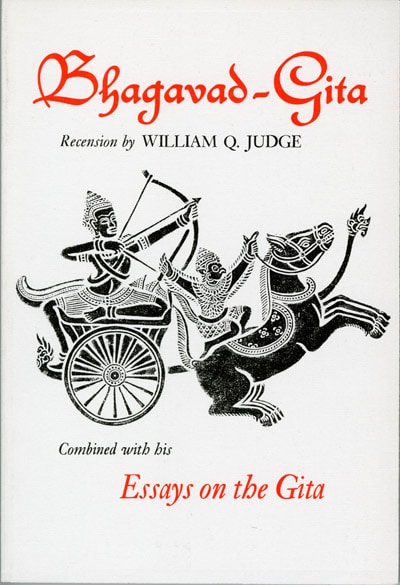Bhagavad-Gîtâ, The & Essay’s on the Gita
The Bhagavad-Gîtã, a small episode from India’s great epic, the Mahãbhãrata, has been devotedly read by Hindus for thousands of years. Said to have been written down in Sanskrit by the sage Vyãsa, this dialogue between Krishna, an avatar or divine incarnation, and Arjuna, hero of the epic, offers a succinct summary of ancient Indian philosophy, with particular emphasis on the Supreme Spirit as both immanent and transcendent. Since its introduction into the Western world some two hundred years ago, the poem has been translated into practically every modern tongue.
In 1890, responding to many requests from readers of his monthly journal, The Path, William Q. Judge issued a recension of the Gitã, which ever since has been in constant demand. He also wrote several illuminating essays on the poem and these, combined with his recension, make the present work unique among the numerous Gîtãs that are currently available. Concerning the essays, James A. Long writes in the Foreword: “The value of these studies lies in Judge’s exceptional ability to interpret by the light of the ‘perennial philosophy’ the many obscure passages that defied most 19th century scholars,” thus making a bridge between the Gîtã’s oriental approach and modern occidental thought.
Extra informatie
| Gewicht | 311 G |
|---|---|
| Afmetingen | 200 × 137 × 17 mm |
| Schrijver | Judge, W.Q. |
| Uitgave | Paperback |
| Pagina's | 238 |
| ISBN | 0-911500-28-6 |
| Taal | English |
| Uitgeverij | Theosophical University Press |

